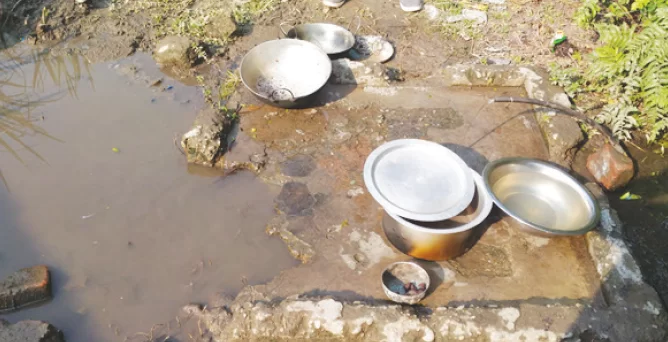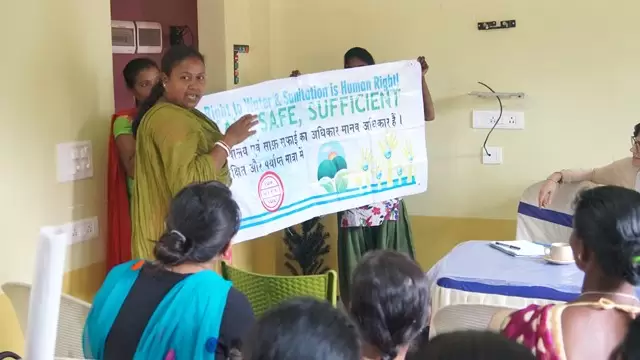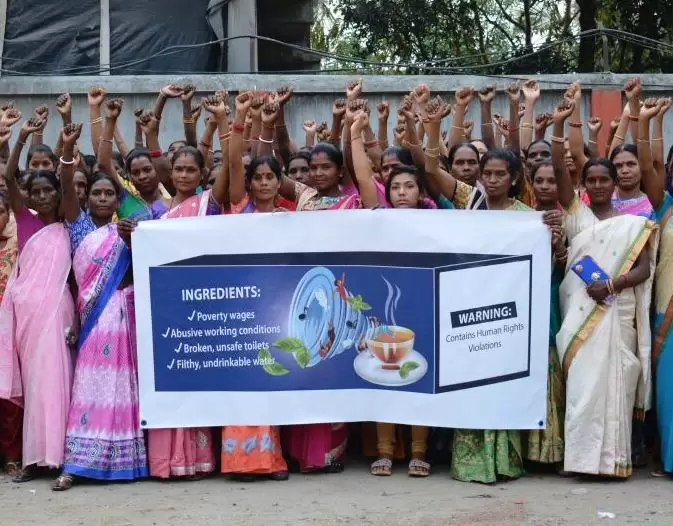World Water Day: women workers on Indian tea plantations supplying global brands demand their right to water and sanitation

On March 22, World Water Day, workers, mainly women, on tea plantations in the states of Assam and West Bengal held meetings and rallies to highlight their continued lack of access to a fundamental human right: the right to water and sanitation. In Assam, 132 workers (124 women and 18 men) from 3 plantations and 305 workers (245 women and 60 men) in West Bengal launched the Water and Sanitation Campaign.
With the support of the IUF, workers on the plantations, mainly women, have formed committees which have documented and mapped the available water and sanitation facilities and demanded negotiations on measures to enable them to access their rights. The estate managements have refused. The IUF now calls on the global tea brands which source from these plantations, in the first instance UK-based Tetley, to push their suppliers to negotiate with the water and sanitation committees.
Click here to read the report on plantations supplying Tetley.
